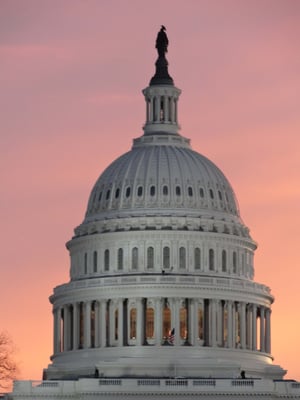
Earlier today, Congress approved a short-term continuing resolution (CR) keeping the Federal government funded through December 11. The CR includes no spending cuts to any domestic programs and, instead, funds all programs at FY 2015 levels as leaders negotiate a final deal.
While the CR easily passed both chambers of Congress, it will be extremely difficult to pass a year-long bill before the end of the year. The most notable reason is the departure of House Speaker, John Boehner (R-OH), who announced his resignation late last week. Speaker Boehner’s last day in Congress is October 30.
Boehner’s replacement, who will likely be House Majority Leader, Kevin McCarthy (R-CA), will be under the same intense pressure from the base of the House Republican caucus to keep the discretionary spending caps in place for FY 2016. Additionally, the new speaker will have to hold another vote to raisethe debt ceiling in November, as well as address the extension of a number of tax breaks set to expire on December 31.
While there is a great deal of uncertainty in the House, there has been growing bi-partisan support in the Senate for raising the spending caps to allow for more discretionary funding for domestic, non-defense programs. In fact, Senator Majority Leader, Mitch McConnell (R-KY), has publicly acknowledged that negotiations on lifting the caps will happen soon with the President and congressional Democrats.
There also have been ongoing discussions of the possibility of a “grand bargain,” where the FY 2016 budget would be rolled into a multi-year extension of the Highway Trust Fund, along with a tax bill addressing the current provisions set to expire at the end of the year.
President Obama has maintained his commitment to vetoing any spending bill that does not lift the current discretionary caps. However, if House and Senate leaders are nowhere near a deal in early December, the likelihood of a year-long CR being enacted increases dramatically. If that were to happen, it’s possible that a deal could be struck to lift the caps to add some new funding for discretionary.
It’s also possible we could have another government shutdown in December. We will provide updates and opportunities to advocate for early childhood funding.





